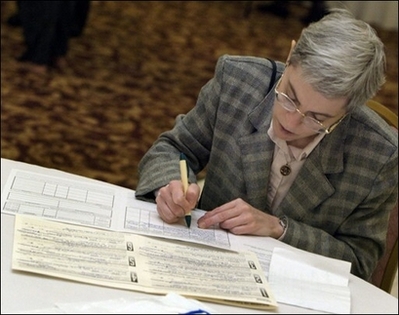US braces for baby boom retirement wave
Updated: 2007-12-26 11:11
WASHINGTON - The first of the vast US baby boom generation goes into retirement in January, setting off a demographic tidal wave with wide-ranging economic, political and social implications.
Kathleen Casey-Kirschling, born on January 1, 1946, is acknowledged as the nation's first baby boomer and the first to apply for social security benefits, for which she will be eligible in 2008.
|
|
The New Jersey grandmother is the first of an estimated 80 million Americans born between 1946 and 1964, a generation that led a social revolution in the 1960s and changed the fabric of most facets of society.
The cost for government-funded social security and medical care for the boomers leaves a funding gap of between 40 and 76 trillion dollars for next 75 years, according to various estimates.
"America is facing a demographic juggernaut," says Brent Green, a marketing consultant and author, in his "Boomers" blog.
"An unprecedented number will soon be entering the retirement stage of life. One-third of the population will be over 50 by 2010. One in five will be over 65 by 2010."
Leonard Steinhorn, an American University professor and author of "The Greater Generation: In Defense of the Baby Boom Legacy," says the generation often wrongly maligned as latte-sipping Yuppies has transformed most of American society.
He wrote that boomers have led or sustained most of "the great citizen movements that have advanced American values and freedoms -- the environmental movement, the consumer movement, the women's movement, the civil rights movement, the diversity movement, the human rights movement, the openness in government movement."
He told AFP he expects this transformation to continue as boomers age. "It's not going to be a generation that's going to go off to the golf courses and do nothing."
He said boomers will push politics to a more progressive bent even though that has not yet happened because the more conservative over-60 generation still carries much weight in the electorate.
"Once younger voters begin to replace them, the socially conservative vote will dwindle," he said.
The generation is a ripe target for marketing of everything from travel to real estate to computer games for keeping minds fit.
"In the whole way we think about aging and the way companies develop products, we have traditionally been a country of the young," said David Baxter, senior vice president at Age Wave, a California-based research and consulting company focused on the over-50 population.
"If you look at the hottest products, companies think the youth market is the most important."
Baxter said marketers are still using "the myth that older consumers are stuck in their brands and not very interesting consumers. But it's the mature consumer who has all the money."
Americans aged 50 and over have a collective one trillion dollars in disposable income and control 67 percent of the US wealth, according to the over-50 social networking website Eons.
|
|
|
||
|
||
|
|
|
|



